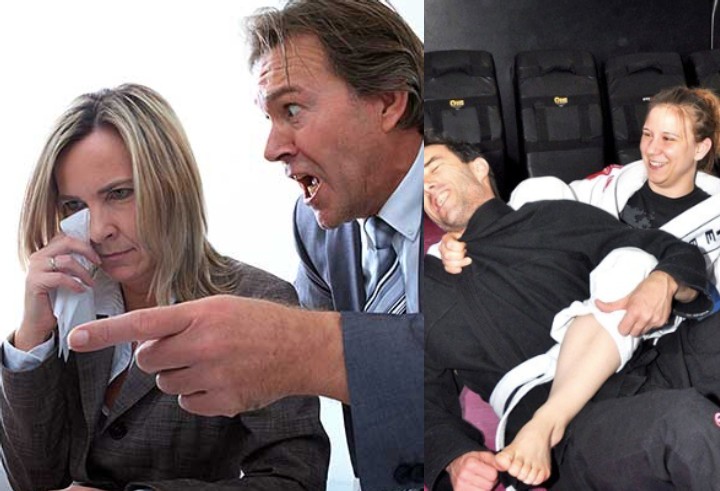Being a part of the bjj community you often hear about how effective bjj is when it comes to dealing with various anxiety driven disorders such as post traumatic stress, depression, panic attacks and others.
Recently a research was conducted observing the effects of bjj on veterans suffering from PTSD only to find that they’re more responsive to this type of treatment than any of the traditional therapy approaches including medication.
New Scientific Study Measuring Positive Influence Of Jiu-Jitsu on PTSD
Using Jiu-Jitsu as a form of therapy for mental health, stress relief, and anxiety management can be quite effective. Here’s how it can help and some tips for maximizing its therapeutic benefits:
- Physical Exercise: Jiu-Jitsu is a physically demanding sport that increases endorphin levels in the brain. These endorphins are natural mood lifters, which can help alleviate symptoms of depression and anxiety.
- Mindfulness and Focus: The practice requires intense focus and presence in the moment. This aspect of Jiu-Jitsu can be similar to mindfulness meditation, helping to divert attention away from stressful thoughts and promoting mental clarity.
- Social Interaction and Community: Training in Jiu-Jitsu often involves being part of a community. This social aspect can be therapeutic, providing support, friendship, and a sense of belonging.
- Building Confidence and Resilience: Learning and mastering new skills, overcoming challenges, and seeing physical and mental improvements can greatly boost self-esteem and resilience.
- Stress Relief: Physical activity, especially martial arts like Jiu-Jitsu, can be a productive outlet for releasing tension and stress.
- Discipline and Routine: Regular training instills discipline and creates a routine, which can be beneficial for individuals struggling with anxiety or stress-related issues.
- Control and Autonomy: Learning self-defense skills can empower individuals, giving them a sense of control and autonomy, which is often helpful for those who have experienced trauma or feelings of powerlessness.
Tips for Using Jiu-Jitsu as Therapy:
- Start Slowly: If you’re new to Jiu-Jitsu or exercise, start slowly to avoid injury and gradually build up your tolerance and skill level.
- Communicate with Your Instructor: Let your instructor know about your goals and any mental health concerns. They can tailor your training experience to better suit your needs.
- Listen to Your Body: Pay attention to your body’s signals. Overtraining or ignoring injuries can lead to burnout or worsening of symptoms.
- Combine with Professional Help: If you are dealing with severe mental health issues, it’s important to combine Jiu-Jitsu with professional mental health care, such as therapy or counseling.
- Reflect on Your Experience: After training sessions, take some time to reflect on your experiences, the challenges you faced, and how you felt before and after the session.
- Be Patient and Consistent: Benefits from physical activity, including martial arts like Jiu-Jitsu, often take time. Consistency is key.
Remember, while Jiu-Jitsu can be a valuable tool in managing mental health, it’s not a substitute for professional mental health treatment when that is needed. It’s always advisable to consult with a healthcare provider regarding the best approach for your specific needs.


















